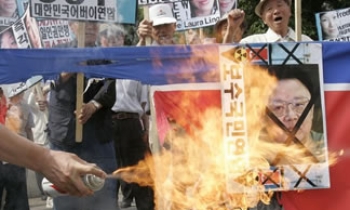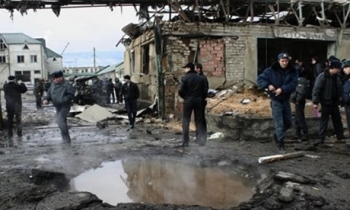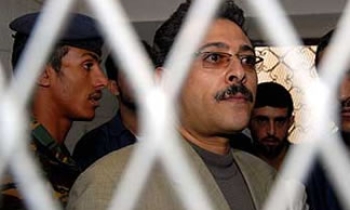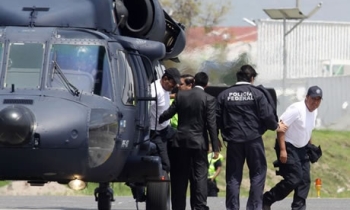The Sudanese police Monday arrested 70 journalists in capital Khartoum where they had gathered to present a memorandum to lawmakers asking them to revise the Press and Media Law and to make it conform to the interim constitution.
Scores of journalists rallied outside parliament condemning the censorship which flouts the freedom of expression supposed to be enshrined in Sudan's interim constitution following the end of a north-south civil war, Agence France-Presse (AFP) reported. Reporters and newspaper editors have stepped up protests against censorship and arrests, staging a hunger strike on November 4 and demanding that new legislation be passed to guarantee a free press.
Some details about the arrests from the AFP report: [Link]
Police, who had asked the reporters to disperse, ordered all the protesting journalists into a truck and drove them to a police station in Omdurman, the twin city of Khartoum, shortly after midday (0900 GMT).
"They took us very harshly in one lorry ... They are talking about interrogation. They took mobiles and money," Murtada el-Ghali, the editor in chief of Ajras Al-Hurriya newspaper, told AFP while in custody.
The arrests came just as parliament approved a nine-member independent electoral commission, in a key step towards holding scheduled free elections due next year despite massive delays in preparations so far. Police started to release the journalists about three hours later.
"The police accuse all the journalists of having an illegal gathering and told them to come tomorrow to the court. No one will stay in the police station -- they are now signing the papers to come tomorrow," lawyer Wagdy Salih said. "They've started to release some of us. We understand we will be subject to an interrogation and will later go to court," said Ghali.
A correspondent for pan-Arab television station Al-Jazeera said security officers confiscated a tape from his camera that had recorded the arrests outside parliament and he had been summoned by national security.
More than 150 journalists later met and declared they would down tools on Monday as representatives of 12 independent newspapers announced they would not publish editions on Tuesday in protest at the arrests.
The Sudan Tribune website reported: [Link]
Since the indictment of the Sudanese president by the prosecutor of International Criminal Court (ICC); the security service imposed a pre-censorship process which involves the appointment of a security officer attached to each newspaper who every evening reviews the text of the edition and decides which articles are to be cut or re-written, columns excised or whole pages and sections removed.
The current escalation in repressive measures against the independent media began in February 2008, immediately after the attempted coup in Chad in which the government of Chad alleged the government of Sudan was complicit.









